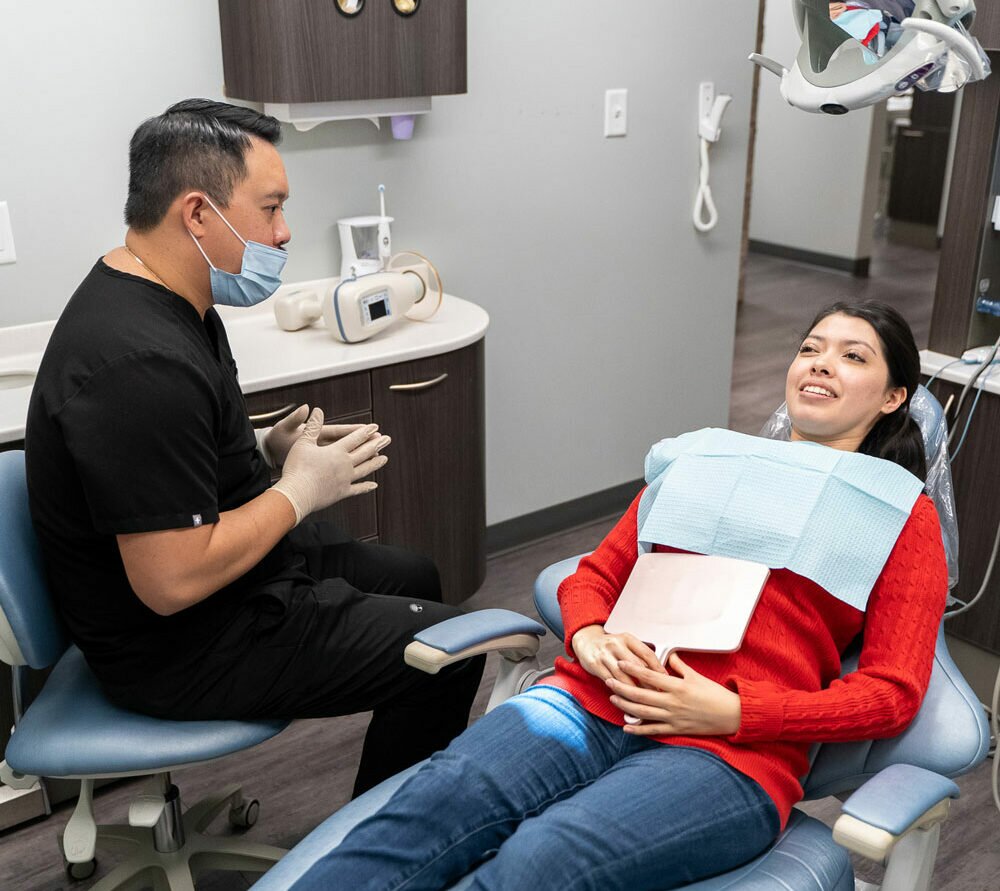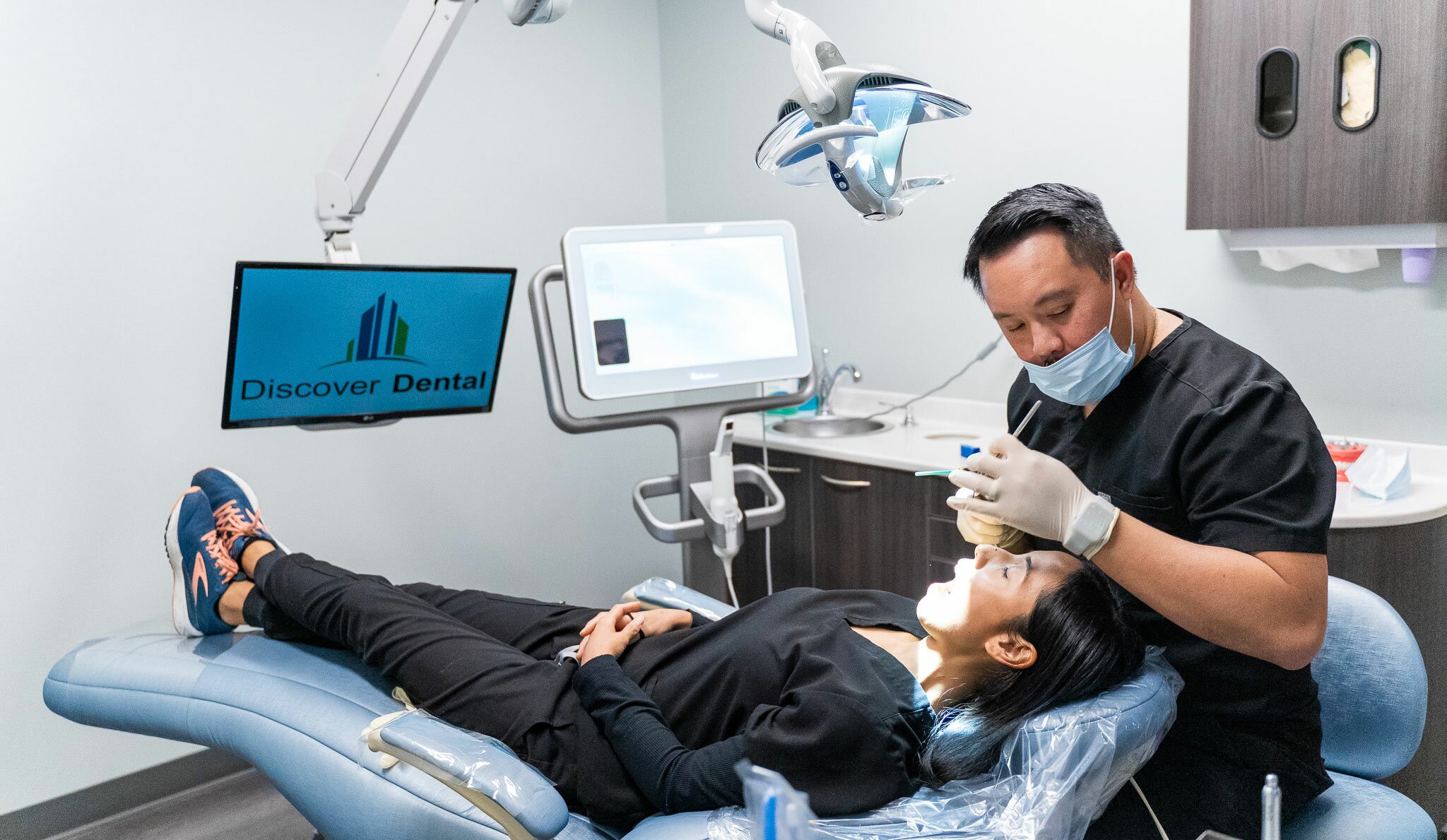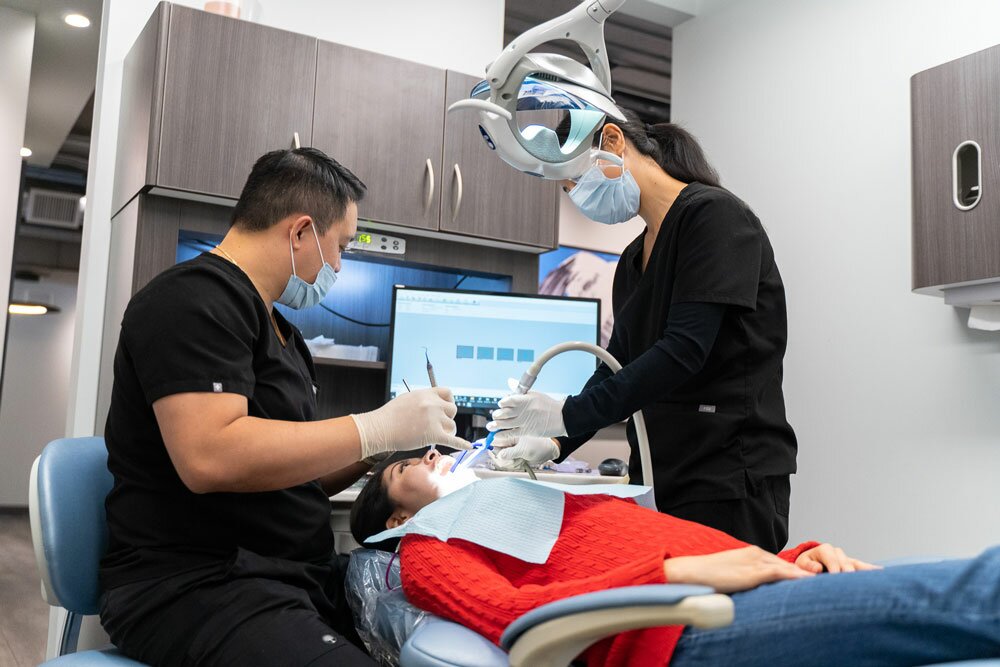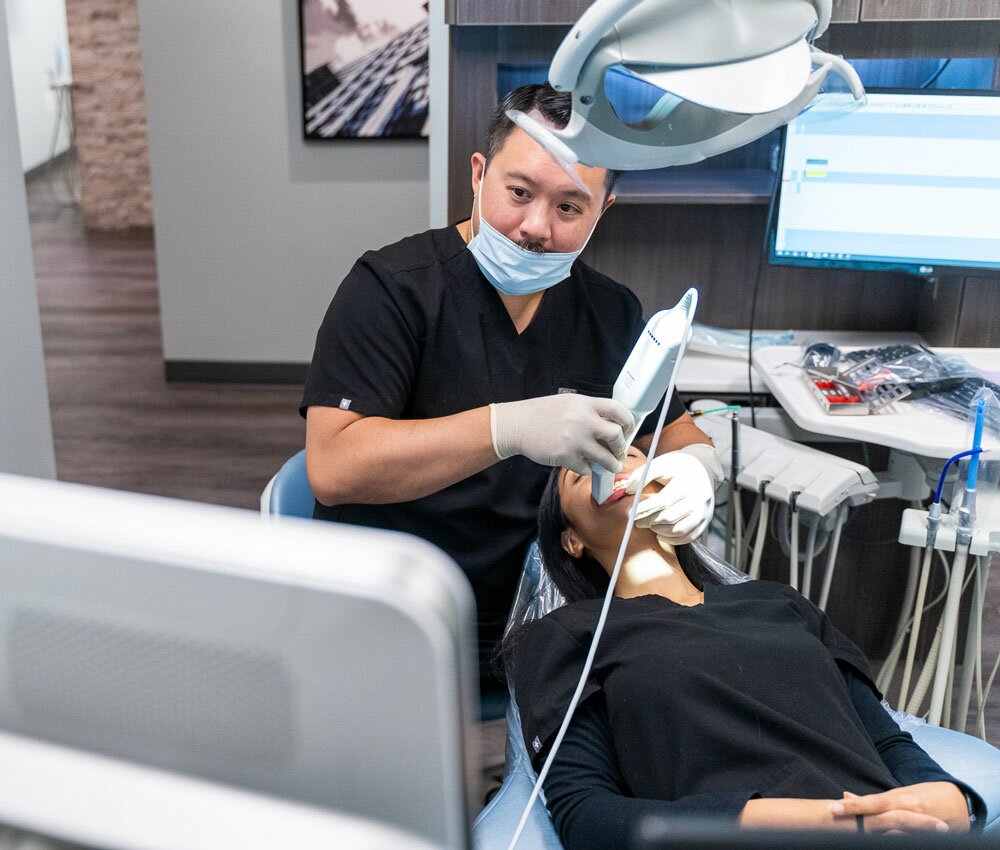Root canals are necessary when the pulp, which is the soft tissue inside the tooth, becomes inflamed or infected. This can happen due to a deep cavity, a crack or chip in the tooth, or trauma to the tooth. If you’re experiencing any of these symptoms, contact your dentist right away. Discover Dental is led by highly-skilled dentists specializing in restorative procedures that fix your teeth and prevent further damage.
What is Root Canal Therapy?
A tooth can be severely damaged or infected for a number of reasons, including decay, a large filling, a crack or chip, and trauma. If the damage or infection is left untreated, it can lead to serious problems, including abscesses, bone loss, and tooth loss. Root canal therapy can prevent these problems and save the tooth. During a root canal, the dentist removes the damaged or infected pulp (the soft tissue inside the tooth), cleans and shapes the inside of the tooth, and then fills the tooth.

Do you have excruciating tooth pain? Let us help alleviate your pain. Book now.
Signs & Symptoms to Watch For:
- Severe tooth pain that radiates to your jaw, neck, or ear
- Sensitivity to hot or cold temperatures that lingers after the stimulus has been removed
- Tenderness or pain when you bite down
- Discoloration of the tooth
- Swelling or tenderness in the nearby gums
We are commited to helping you achieve your optimal oral health. Schedule your appointment online now.
The Complete Root Canal Procedure
The first step in a root canal procedure is to numb the tooth and surrounding area with an injection of local anesthesia. A rubber dam (a small rubber sheet) is placed around the tooth to keep it dry and free of saliva, following which the dentist makes an opening in the tooth and removes the nerve and pulp. The tooth is then cleaned and sealed with a material called gutta-percha. Finally, the dentist will place a filling or crown over the tooth.

Do you have swollen gums and persistant tooth pain? You may need a root canal. Call us now to book your appointment.
Root Canal Procedure FAQs
What should you not do before a root canal?
A root canal is a serious procedure, and there are a few things you should avoid doing before you undergo the procedure:
- Avoid eating hard or chewy foods — stick to a soft diet in the days before your root canal.
- Don’t brush or floss too vigorously — doing so could irritate the area around your tooth.
- Avoid using medications that could thin your blood.
- Don’t eat or drink anything for at least two hours before the procedure.
- Avoid smoking a few days before the procedure.
How many days procedure is root canal?
Root canals are one of the most common dental procedures performed each year. While they may seem daunting, they are usually relatively quick and straightforward. Most root canals can be completed in one or two visits, depending on the tooth and the extent of the damage.
How many minutes does a root canal take?
A root canal involves removing the damaged tissue from inside the tooth and then filling and sealing the tooth. Root canals typically take 30-60 minutes to complete.
How long is recovery time from root canal?
Recovery from a root canal procedure is usually quick and uneventful. Most people feel relief from their tooth pain immediately after the procedure is completed. If you have any discomfort, you can take over-the-counter pain medication. It is normal to have some swelling and soreness for a few days after the procedure. You should avoid chewing hard foods on the treated tooth and brush and floss carefully.
Will my insurance cover the procedure?
Most people dread the thought of getting a root canal, but if you need one, you’re probably wondering if your insurance will cover the procedure. The good news is that, in most cases, insurance will cover at least a portion of the cost of a root canal. However, the extent of insurance coverage depends on your specific plan.
What root canal symptoms should I watch for?
Symptoms that may indicate you need a root canal include:
- Severe toothache that is not relieved by over-the-counter pain medication
- Sensitivity to hot or cold temperatures that lingers after the stimulus is removed
- Discoloration of the tooth
- Tenderness or swelling in the nearby gums
- A small, pimple-like bump on the gums near the affected tooth
What is involved in a root canal?
A root canal is a dental procedure in which the damaged or infected nerve tissue is removed from the tooth. The nerve tissue is located in the root canal, which is the space inside the tooth’s root. The procedure involves removing the damaged tissue from inside the tooth, cleaning and disinfecting the tooth, and then filling and sealing it. Root canals are usually successful and can help to prolong the life of your natural teeth.
Are root canals common?
A root canal is a treatment used to repair and save a tooth that is badly decayed or infected. Root canals are common, and they are nothing to be afraid of. It’s estimated that over 15 million successful root canals are performed each year in the United States.
How safe is a root canal procedure?
A root canal procedure is a safe, effective way to treat a tooth that is infected or damaged. The procedure involves removing the damaged or infected tissue from the inside of the tooth and then sealing the tooth to protect it from further damage. A root canal is often the last resort to save a decayed and infected tooth.
How to know if you need a root canal?
If you’re feeling severe pain in your tooth or sensitivity to hot or cold substances, along with swelling or tenderness of your gums, a lump on your gums, tooth discoloration, or a significant cavity, then a root canal procedure may be necessary. It’s recommended that you consult with our dentist and undergo a comprehensive examination – including x-rays for an accurate diagnosis. Seeking prompt medical attention can help prevent further complications or infections.
How long does a root canal last?
The durability of a root canal hinges on factors such as the extent of damage, location, and oral hygiene upkeep. With adequate care, it can persist for a lifetime. To achieve this, regular dental checkups and cleanings, daily flossing, and twice-daily brushing are essential practices that must be observed.
How painful is a root canal?
In the event that you receive a root canal treatment, your dental professional will utilize anesthesia to ensure that the affected region is numb thus preventing any pain. While some tenderness and sensitivity may be present for a few days following the procedure, you can manage the discomfort by taking over-the-counter pain relief medication or following the prescribed medication from your dentist. If you experience severe pain or swelling, it’s important to seek immediate assistance from your dentist without any delay.
How long does a root canal take to heal?
Your healing time for a root canal may vary based on the severity of your infection and your overall health. Usually, you may experience discomfort for a few days to a week after the procedure. It may take weeks for your tooth to fully heal, so it’s important to practice good oral hygiene and follow post-treatment instructions. Scheduling a follow-up visit with your dentist is essential. Book your appointment online now!
What to expect after a root canal treatment?
After your root canal operation, you may experience sensitivity and discomfort for a few days. Maintaining appropriate dental hygiene might help you lessen discomfort and manage pain with medication. It’s important to steer clear of hard or sticky foods to prevent further harm to the treated tooth. Don’t forget to schedule a follow-up visit to our Houston Clinic to ensure the success of the treatment. Lastly, a crown or other restoration may be prescribed to restore your tooth’s strength and function. Book your appointment online now!
Contact Your Root Canal Dentist in Houston
If you’re looking for a qualified root canal dentist in Houston, TX, 77008, look no further than Discover Dental. Dr. Tony Tran and his team of highly trained professionals provide top-quality dental care to patients of all ages. Whether you’re in need of a routine cleaning or a more complex procedure, Discover Dental specialist is here to help. We offer a wide range of restorative services, including root canals and same day crowns. For more information or to schedule an appointment, contact us today.




